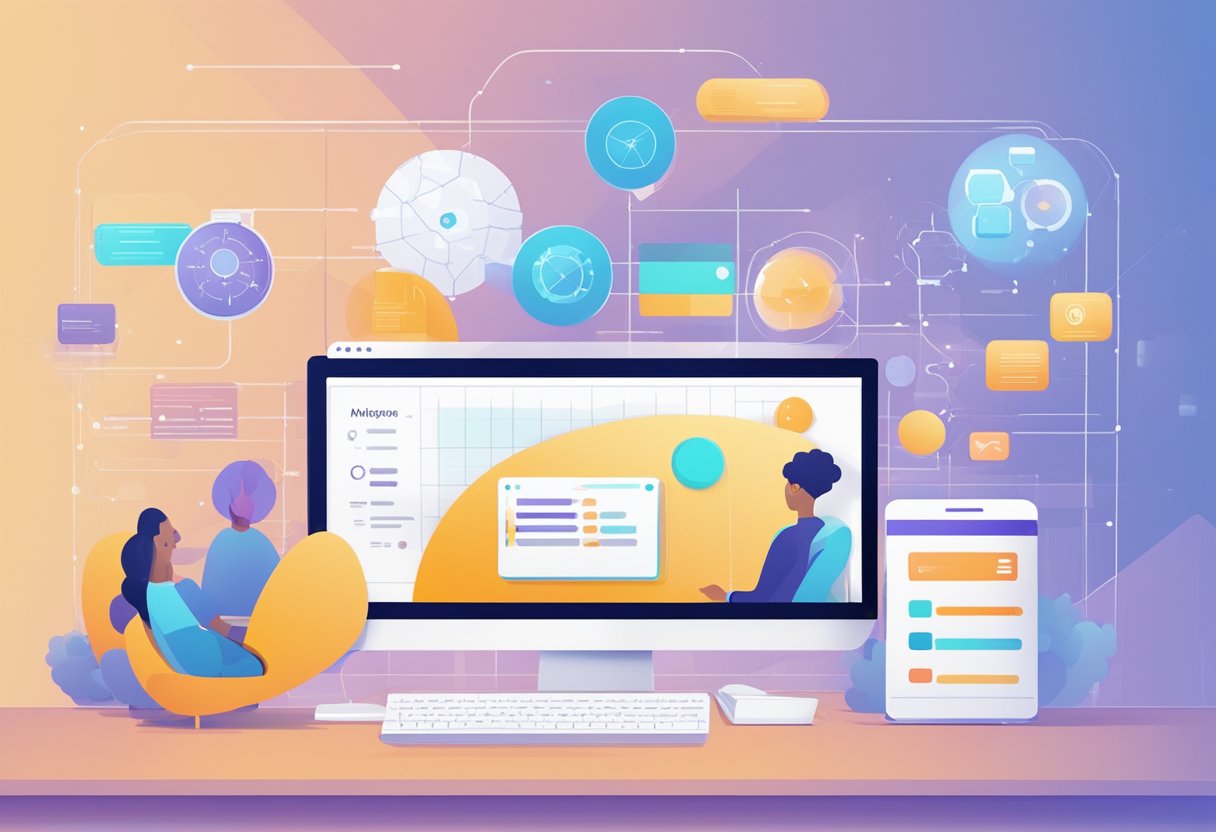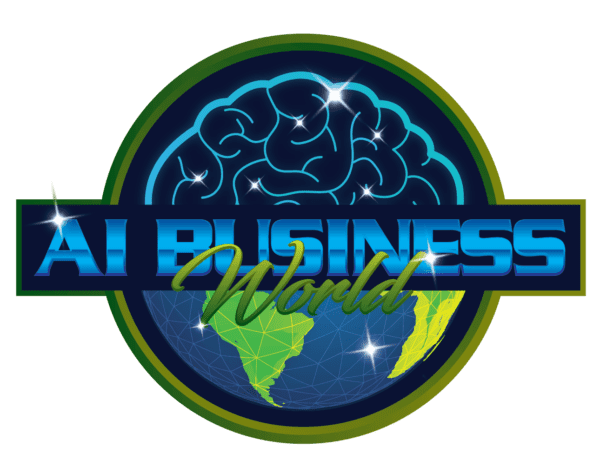Emerging AI Technologies for Business: A Comprehensive Overview

Table of Contents
Emerging AI technologies are transforming the way businesses operate. From automating routine tasks to improving customer experience, AI is changing the game for companies across industries. With the rise of AI, businesses can unlock new opportunities for growth, innovation, and efficiency.
Foundational AI technologies for business include machine learning, natural language processing, and computer vision. These technologies enable businesses to analyze large data sets, automate routine tasks, and improve decision-making.
AI is also being used to drive customer experience by providing personalized recommendations, chatbots, and virtual assistants.
With AI, businesses can optimize their processes, reduce costs, and improve customer satisfaction.
As more and more businesses adopt emerging AI technologies for business, ethical considerations and compliance become increasingly important. Companies must ensure that their AI systems are transparent, fair, and unbiased. They must also comply with regulations and standards to protect customer privacy and data security.
By embracing AI technologies responsibly, businesses can unlock the full potential of AI while maintaining trust and credibility with their customers.
Foundational AI Technologies for Business
Artificial Intelligence (AI) has become a buzzword in the business world, and for a good reason. Emerging AI technologies have the potential to revolutionize the way businesses operate, making them more efficient, productive, and profitable. In this section, we will discuss the foundational AI technologies for business and their potential benefits.
Machine Learning Platforms
Machine learning (ML) is a subset of AI that uses algorithms to learn from data and make predictions or decisions without being explicitly programmed. Machine learning platforms are essential tools for businesses that want to leverage the power of data to improve their operations. These platforms provide a range of functionalities, including data preparation, model training, and deployment.
One of the most popular machine learning platforms is TensorFlow. Developed by Google, TensorFlow is an open-source platform that provides a range of tools for building and deploying machine learning models. Another popular platform is Amazon SageMaker, which provides a range of pre-built models and tools for building custom models.
Natural Language Processing
Natural Language Processing (NLP) is a subfield of AI that focuses on the interaction between computers and human language. NLP technologies can be used to analyze, understand, and generate natural language text. This technology is particularly useful for businesses that deal with large volumes of unstructured text data, such as customer reviews, social media posts, and emails.
One of the most popular NLP platforms is Google Cloud Natural Language. This platform provides a range of tools for sentiment analysis, entity recognition, and syntax analysis. Another popular platform is Amazon Comprehend, which provides a range of pre-built models for analyzing text data.
Robotic Process Automation
Robotic Process Automation (RPA) is a technology that uses software robots to automate repetitive and mundane tasks.
RPA can be used to automate a range of business processes, including data entry, invoice processing, and customer service. RPA can help businesses save time and reduce errors, allowing employees to focus on more strategic tasks.
One of the most popular RPA platforms is UiPath. This platform provides a range of tools for automating business processes, including a drag-and-drop interface for building workflows. Another popular platform is Automation Anywhere, which provides a range of pre-built bots for automating common business processes.
In conclusion, the foundational AI technologies for business discussed in this section have the potential to transform the way businesses operate. By leveraging the power of machine learning, natural language processing, and robotic process automation, businesses can improve their operations, reduce costs, and increase profitability.
Key Takeaways
- Foundational AI technologies for business include machine learning, natural language processing, and computer vision
- AI can be used to drive customer experience by providing personalized recommendations, chatbots, and virtual assistants
- Ethical considerations and compliance are important for companies adopting AI technologies
Business Analytics Emerging AI Technologies

Artificial intelligence (AI) has become an essential tool for businesses looking to gain insights from their data. By leveraging AI in business analytics, companies can make data-driven decisions that improve efficiency, reduce costs, and increase revenue.
Predictive Analytics
Predictive analytics is a type of AI that uses historical data and machine learning algorithms to identify patterns and predict future outcomes.
This technology is particularly useful for businesses that want to anticipate customer behavior, market trends, and supply chain disruptions. By analyzing large amounts of data, predictive analytics can help businesses make informed decisions about inventory, pricing, and marketing strategies.
Prescriptive Analytics
Prescriptive analytics is another type of AI that uses machine learning algorithms to optimize business processes. This technology takes predictive analytics a step further by recommending specific actions that businesses can take to achieve their desired outcomes.
For example, prescriptive analytics can help businesses optimize their supply chain by suggesting the most efficient routes for shipping and delivery.
Data Mining and Analysis
Data mining and analysis is a process that uses AI to extract valuable insights from large data sets. This technology is particularly useful for businesses that want to understand customer behavior, market trends, and other factors that impact their bottom line.
By analyzing data from multiple sources, data mining and analysis can help businesses identify opportunities for growth and optimize their operations.
In conclusion, AI in business analytics is a powerful tool that can help businesses make data-driven decisions and gain a competitive edge.
By leveraging predictive analytics, prescriptive analytics, and data mining and analysis, businesses can optimize their operations, reduce costs, and increase revenue.
Driven Customer Experience with Emerging AI Technologies

Artificial Intelligence (AI) technologies are transforming the way businesses interact with their customers.
AI-driven customer experience has become a crucial aspect of business operations. With the help of AI, businesses can provide personalized and efficient services to their customers. In this section, we will discuss some of the emerging AI technologies that are driving the customer experience.
Chatbots and Virtual Assistants
Chatbots and virtual assistants are AI-powered conversational agents that can interact with customers in natural language. They can answer customer queries, provide information, and even complete transactions. Chatbots and virtual assistants are available 24/7, which means customers can get help at any time. This technology has become popular among businesses as it helps reduce the workload on customer service representatives and provides a seamless experience to customers.
Personalization Engines
Personalization engines is another emerging AI technology that uses AI to provide personalized experiences to customers. They can analyze customer data and behavior to provide customized recommendations, offers, and content. Personalization engines can help businesses increase customer engagement, loyalty, and satisfaction. According to a study by Epsilon, personalized emails have an open rate of 29% compared to non-personalized emails, which have an open rate of 17.6%.
Customer Sentiment Analysis
Customer sentiment analysis uses AI to analyze customer feedback and social media posts to understand customer sentiment. This technology can help businesses identify areas where they need to improve and address customer concerns. It can also help businesses identify trends and patterns in customer feedback, which can be used to improve products and services.
In conclusion, AI-driven customer experience has become a crucial aspect of business operations. Chatbots and virtual assistants, personalization engines, and customer sentiment analysis are some of the emerging AI technologies that are driving the customer experience.
Businesses that adopt these technologies can provide personalized and efficient services to their customers, which can lead to increased customer engagement, loyalty, and satisfaction.
AI for Business Process Optimization

Artificial Intelligence (AI) is revolutionizing the way businesses optimize their operations with AI software.
AI-powered tools can help automate repetitive tasks, identify inefficiencies, and streamline workflows. In this section, we will explore some of the ways AI is being used for business process optimization.
Supply Chain Management
AI can help businesses optimize their supply chain management by predicting demand, identifying potential bottlenecks, and optimizing delivery routes. By analyzing large amounts of data, AI-powered tools can help businesses make better decisions about inventory management, supplier selection, and order fulfillment. For example, AI can help identify the most cost-effective shipping routes, reducing delivery times and costs.
Smart Resource Allocation
AI can help businesses optimize their resource allocation by predicting demand and identifying inefficiencies. By analyzing data on customer behavior, sales trends, and production capacity, AI can help businesses make better decisions about resource allocation. For example, AI can help identify the most efficient production processes, reducing waste and improving quality.
Workflow Automation
AI can help businesses automate repetitive tasks and streamline workflows. By analyzing data on employee behavior and process efficiency, AI can help identify areas where automation can be most effective. For example, AI can help automate content writing, graphic design, video creation, web design and more to save time and money.
In conclusion, AI is transforming the way businesses optimize their operations. By using AI-powered tools for supply chain management, resource allocation, and workflow automation, businesses can reduce costs, improve efficiency, and stay competitive in an increasingly complex business environment.
Ethical Considerations and Compliance
As AI technologies continue to advance, businesses must be aware of the ethical considerations and compliance issues that arise with their use. This section will discuss some of the key concerns and best practices and AI Tips for addressing them.
Bias and Fairness
One of the most significant ethical considerations with AI is the potential for bias and unfairness. AI algorithms can be trained on biased data, which can result in discriminatory outcomes.
To address this issue, businesses must prioritize fairness and diversity in their data and algorithm development. They should also regularly audit their algorithms for bias and take steps to mitigate any issues that arise.
AI Governance
Another important ethical consideration with AI is governance. AI systems can have significant impacts on society, and businesses must be accountable for these impacts. This includes ensuring that their AI systems are transparent and explainable, so that stakeholders can understand how decisions are being made.
To address this issue, businesses should establish clear governance frameworks for their AI systems. This includes establishing clear lines of responsibility and accountability, as well as processes for monitoring and auditing their systems.
Regulatory Compliance
Finally, businesses must also ensure that their use of AI complies with relevant regulations. This includes regulations related to data privacy, security, and discrimination.
For example, the General Data Protection Regulation (GDPR) in the European Union requires businesses to obtain explicit consent from individuals before collecting and processing their personal data.
To comply with these regulations, businesses must ensure that their AI systems are designed with privacy and security in mind. They should also regularly audit their systems for compliance and take steps to address any issues that arise.
In summary, businesses must prioritize ethical considerations and compliance when using AI technologies.
This includes addressing issues related to bias and fairness, establishing clear governance frameworks, and ensuring compliance with relevant regulations. By taking these steps, businesses can ensure that their use of AI is responsible and beneficial for all stakeholders.

